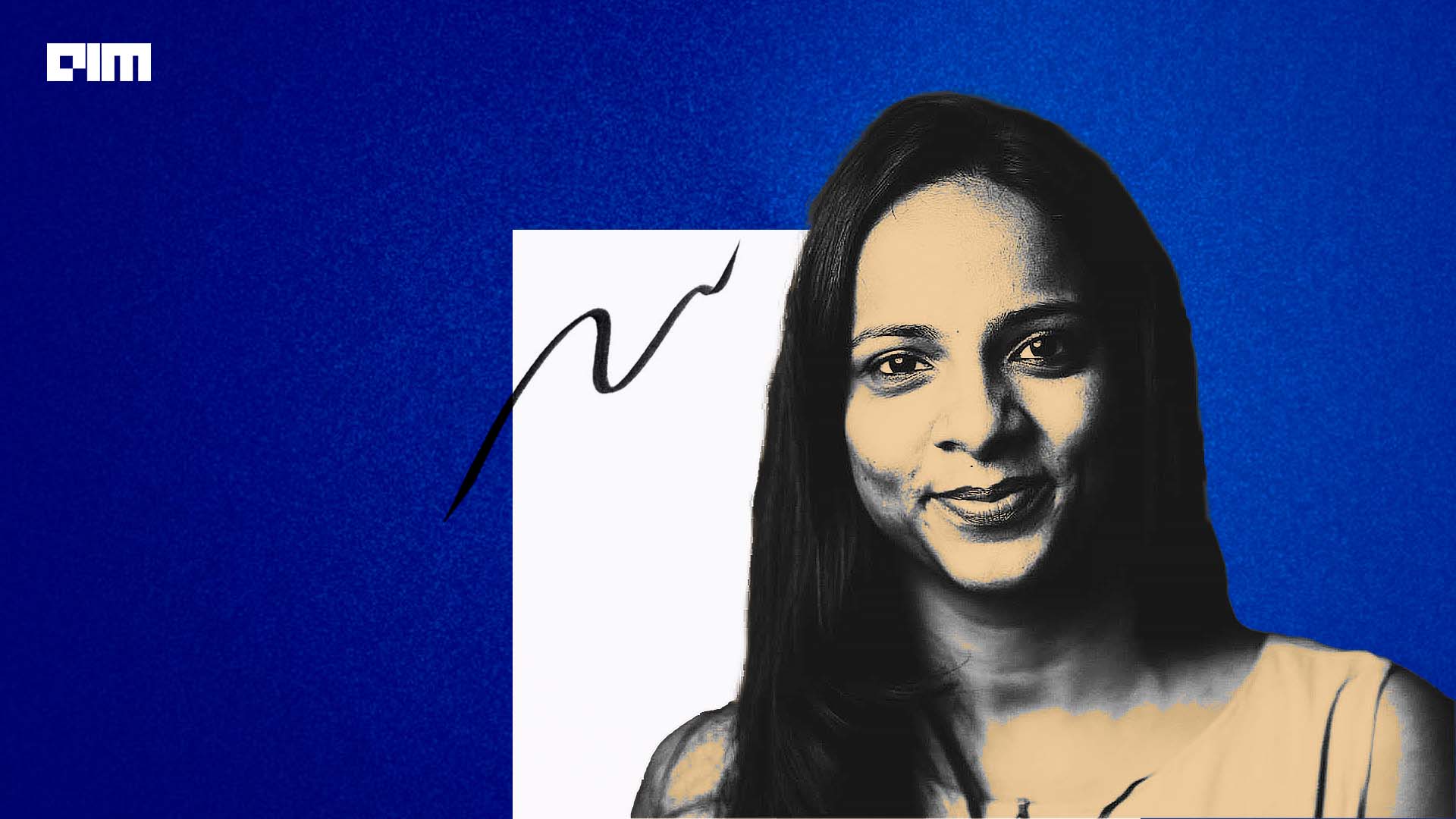
Bengaluru-based BrainSightAI is one of the hottest AI startups in India. The company leverages AI and machine learning to map the human brain, aiding thousands of clinicians, including neurosurgeons, psychiatrists, and neurologists, across the country. This innovation enhances treatment and surgery options and facilitates an early detection of neurological disorders such as epilepsy, multiple sclerosis, and Parkinson’s disease.
“We work in a very niche area, and I don’t think a brain MRI is done in India. There’s nobody really working on the kind of cutting-edge work that we are doing. In fact, we are one of two companies worldwide that are doing this work,” said BrainSightAI chief Laina Emmanuel in an exclusive interview with AIM, highlighting that it is one of the few companies working in the field of connectomic analysis.
Emmanuel said that psychiatric disorders don’t have a body-based indicator, unlike say, heart disorders, where the doctors first examine the heart rate. “Sadly, psychiatry has been trying to find a body-based indicator for centuries now,” said Emmanuel. “One of the recent breakthroughs across the psychiatric field is that brain connectivity can serve as an indicator to understand psychiatric disorders, such as ADHD, OCD, bipolar, etc,” she said, introducing VoxelBox.
Voxel to Vision
VoxelBox, one of the most popular products of BrainSightAI, is an AI and ML-based neuroimaging solution. It provides personalised brain maps, offering visual glimpse of the functional and structural connections in the brain.
Emmanuel said that VoxelBox has already found many applications. “Today, we work with hospitals for brain tumour surgeries. Before conducting a surgery, doctors want to know where the different functions of the brain are located. If a doctor knows, with relation to the tumour, where these networks are, he can actually do a better job of figuring out how to cut the brain,” said Emmanuel.
“The second aspect is that the work we do also has implications for epilepsy. You can use it to figure out the epileptic foci in the brain. Where is the earthquake in the brain happening? It is also one of the earliest indicators for dementia,” said Emmanuel.
Unleashing Generative Prowess
Emmanuel told AIM that BrainSightAI is using generative AI for drug discovery for dementia. The use of generative drugs eliminates the need for actual patients in the study. Typically, discovering drugs requires taking MRI scans of the brain and creating a model, but with the help of generative AI one can create multiple virtual patients.
“Using generative AI, you can tweak brain models,” said Emmanuel. She said that the potential is huge, where one can create multiple brain models of the patients to study the cause and effect of various drugs, therapies, or cognitive processes.
Inception of BrainSightAI
Prior to venturing into BrainSightAI in 2019, with co-founder Rimjhim Agrawal, Emmanuel worked as a software engineer at Infosys. She later moved to public health working with various ministries and central government through organisations like Access Health International and Clinton Health Initiative. Agrawal, on the other hand, has completed her PhD in machine learning for neurosciences from NIMHANS.

Since 2021, BrainSightAI has been backed by Microsoft as part of Project Amplify. “Our team is excellent at computational neuroscience, but we were not cloud people in the beginning. Microsoft really helped us think through the aspects while considering the cloud,” said Emmanuel. Last month, the company also made it to the Google Accelerator programme, and is backed by several investors.
Last year, BrainSightAI secured INR 1 crore from Redstart Labs. “We are expanding our sales teams now. Recently, we obtained our manufacturing licence as software-as-a-medical-device,” said Emmanuel when asked about how the company is utilising the funds.
“We’ve been ISO certified for almost a year now. Additionally, we have undergone cybersecurity and HIPAA audits. Although HIPAA doesn’t have a certification, we use the HIPAA-compliant cloud from Microsoft,” she added.
Emmanuel shared that BrainSightAI is currently in the final stages of contract negotiations with several hospitals in India. “I’m hoping that we will soon be working with over 30 hospitals, like AIIMS Delhi, St John’s Medical College, Manipal Hospitals and Narayana Hrudayala,” she said. She also mentioned their past collaboration with AIIMS Jodhpur, clarifying that it is no longer in existence.
Currently, BrainSightAI has a small team of 25 people, and is looking to expand in the coming months. “When you join, you’ll see computational neuroscientists, machine learning engineers, and technology software experts, all working together in a collaborative environment,” said Emmanuel. “We receive a lot of requests for our work from other countries and are looking to expand offshore very soon,” she concluded.
The post BrainSightAI’s Laina Emmanuel on Synapsing AI and Neurosurgery appeared first on Analytics India Magazine.